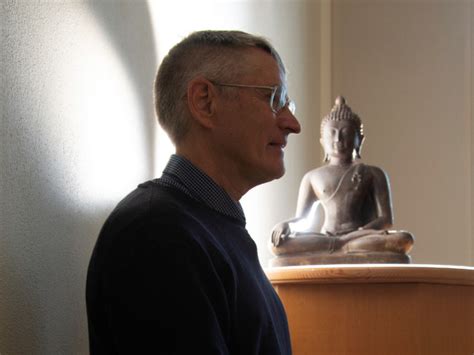A Quote by Dilgo Khyentse Rinpoche
Love and nonattachment are the basis of true generosity.
Quote Topics
Related Quotes
True nonattachment is understanding that you are fundamentally attached to everything and, through that understanding, dropping your attachment to the view that you are detached from that which you encounter. At the same time, real nonattachment means not clinging to things or people. It means dropping the idea that if you don't have this or if you can't get that, your life will be a catastrophe.
The story of the Zen Master whose only response was always "Is that so?" shows the good that comes through inner nonresistance to events, that is to say, being at one with what happens. The story of the man whose comment was invariably a laconic "Maybe" illustrates the wisdom of nonjudgment, and the story of the ring points to the fact of impermanence which, when recognized, leads to nonattachment. Nonresistance, nonjudgement, and nonattachment are the three aspects of true freedom and enlightened living.
Generosity is not limited to the giving of material things. We can be generous with our kindness and receptivity. Generosity can mean the simple giving of a smile or extending ourselves to really listen to a friend. Paradoxically, even being willing to receive the generosity of others can be a form of generosity.
The blessed Paul argues that we are saved by faith, which he declares to be not from us but a gift from God. Thus there cannot possibly be true salvation where there is no true faith, and, since this faith is divinely enabled, it is without doubt bestowed by his free generosity. Where there is true belief through true faith, true salvation certainly accompanies it. Anyone who departs from true faith will not possess the grace of true salvation.
True generosity consists precisely in fighting to destroy the causes which nourish false charity. False charity constrains the fearful and subdued, the "rejects of life," to extend their trembling hands. True generosity lies in striving so that these hands--whether of individuals or entire peoples--need be extended less and less in supplication, so that more and more they become human hands which work and, working, transform the world.






































